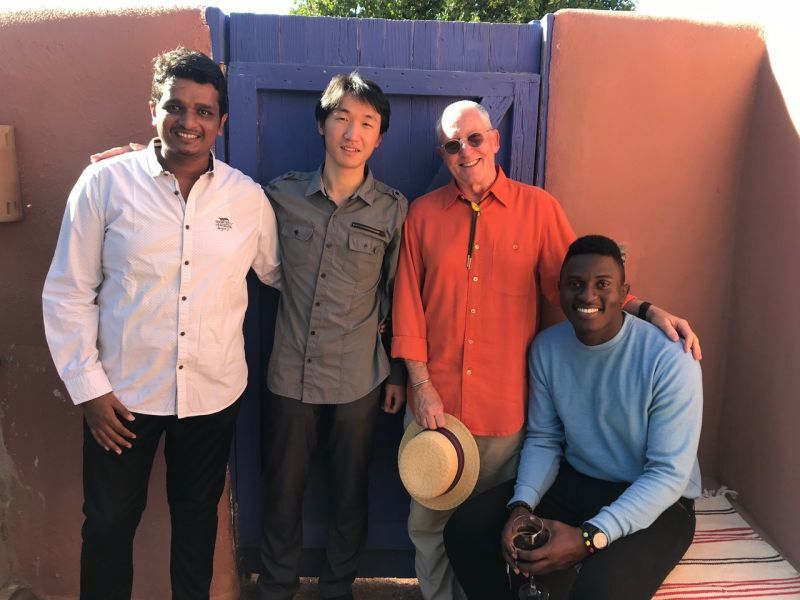The following column is the opinion and analysis of the writer.
Two years ago, when I married my partner of 21 years, I was deeply honored that my five sons from India, China, Ghana, Turkey and Brazil were greeters at my wedding reception. So maybe they’re not my biological sons. Instead they are University of Arizona international students whom I’ve hosted and mentored. Over years of sharing milestones and each other’s culture, they’ve come to feel like real sons to me.
I’m just one of hundreds of Americans who are proud of fostering such connections as volunteers with International Friends of Tucson, a nearly 70-year-old organization serving international students at the University of Arizona. We work hard welcoming these remarkable young people to Tucson, frequently becoming their close friends and surrogate family. Not surprisingly, these relationships often last a lifetime.
So I’ve been deeply disturbed by President Trump’s recent announcement that new international students won’t be allowed to enter the United States if their classes are online. Now, I worry many of these students will abandon their dreams of studying here.
The trend has already started. A report released last winter found that the number of new students coming from foreign countries during the fall of 2019 had fallen for the fourth year in a row, according to a survey of 500 U.S. higher education institutions by the nonprofit Institute of International Education; 58% blamed the decline on the “U.S. social and political environment,” and 49% worried that students were “feeling unwelcome in the United States.” All three major Arizona universities also reported drops last year.
What troubles me most is that this trend hurts our reputation as good, decent Americans who are happy to open our homes and hearts to strangers. After retiring as a special education teacher of 40 years, I joined International Friends because I wanted to repay the hospitality that my parents, husband and I had received during our global travels.
Each academic year, we match more than 100 students with local residents to participate in a monthly activity. I’ve enjoyed introducing them to tacos and quesadillas at Taqueria Pico de Gallo and my favorite chamber music performances and picnics at the Mission San Xavier del Bac.
The incredibly warm humans like my sons have greatly enriched my life. We have celebrated birthdays, holidays and graduations, including with my 94-year-old mother who lives with us. In return, my sons cook us feasts of their own. Or their families travel to spend holidays here. I was particularly touched when my Ghanaian son’s mother boarded a plane for the first time in her life to travel to Arizona for his graduation, and we also celebrated Mother’s Day together.
It’s a fact that foreign students are critical to our economy. During the 2018-2019 academic year, more than 1 million international students contributed $41 billion and supported more than 458,000 jobs, according to the Institute of International Education. Declining enrollment rates could result in a loss of $23 billion for American schools.
Like my Chinese son, who studies the aging brain, foreign students earn a third of all graduate-level degrees in science, technology, engineering and math fields, according to New American Economy. My other sons are studying biochemistry and computer technology. These are fields that benefit us all.
I’m worried that people won’t easily forget the ugly and unfriendly message our government is sending to the rest of the world. That’s why I want the world to know that the American people are still looking forward to welcoming your sons and daughters. We want to break bread — or maybe a quesadilla — and celebrate our shared humanity.





